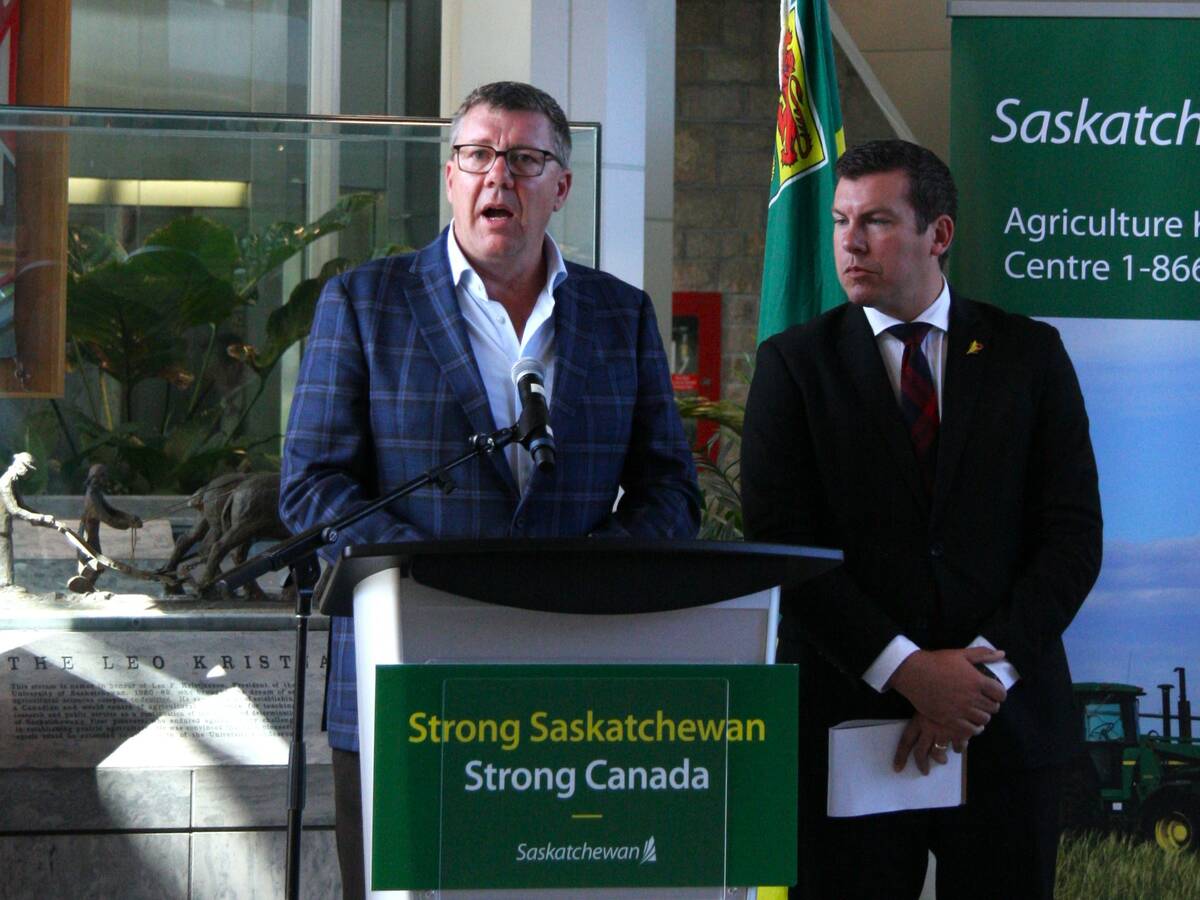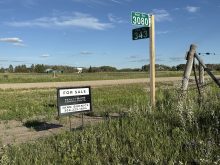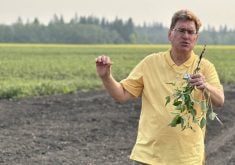100 MILE HOUSE, B.C. – British Columbia beef producers willing to verify the age of this year’s calf crop are eligible for cash from the province.
The B.C. Cattlemen’s Association is administering a $3 million program that will give producers who sign up a $500 upfront bonus, plus $12 per calf that is age verified.
Another $500 will be held to pay for their enrolment in an on-farm food safety program for five years. Non-members of BCCA will be charged $100 to use the program, or they can join the association, said association president Roland Bauman.
Read Also

Key actions identified to address canola tariffs
Federal and Saskatchewan governments discuss next steps with industry on Chinese tariffs
So far 22 producers have signed on, he said.
The group originally asked for $5.5 million so it could offer a $20 per head payment.
“I think we are going to be forced to age verify,” Baumann told ranchers at their annual meeting at 100 Mile House June 13.
Retiring president Ed Salle agreed with Baumann that there is widespread frustration and stress among B.C. beef producers. They enjoy many advantages in raising grass fed cattle in a good climate, but they also receive a seven cents a pound discount to cover freight when cattle are sold at auction and head to Alberta feedlots.
B.C. has had a more dramatic reduction in its herd than some other provinces. Canfax reports it dropped to 250,000 cows from 305,000. Last year, B.C. averaged $104 per hundredweight for 550 pound steers compared to an average $110 per cwt. on Alberta steers, said Andrea Brocklebank of Canfax.
Low bids, rising land costs, high feed and fuel costs mean B.C. producers are losing about $200 per head.
Baumann said the new provincial carbon tax that comes into effect July 1 will add $1,300 a year in expenses on a 200 head cow-calf operation.
The tax applies to all fossil fuels including natural gas, gasoline, diesel, propane, coal and home heating fuel. It is designed to be revenue neutral by offsetting the carbon tax with a drop in income tax rates.
Business analysts predict business will pay two-thirds of the tax but will only receive a third back. It is meant to discourage unnecessary fuel use but many farmers facing tight budgets have already done that and they do not have access to public transportation, said Salle.
During the BCCA meeting a resolution asked for a study into industry survival, looking at supply management, cost of production insurance and the meat inspection system.
Rod Heninger of the Lone Butte Farmers Institute said B.C. agriculture in general is under threat, so changes and options must be discussed.
“Government policy and lack of support has brought about a lot of that situation,” he said.
Supply management is not popular within the beef industry but it needs to be discussed, he said.
An enforced market floor price is another possibility. It could be designed similar to the stock market where trading stops when prices sink to a certain level.
“We are stuck with what the buyers give us for those animals,” he said.
A floor price could give producers some market power if they refused to sell at a low price.
“We should be able to have a say in what we get for our animals,” Heninger said.

















